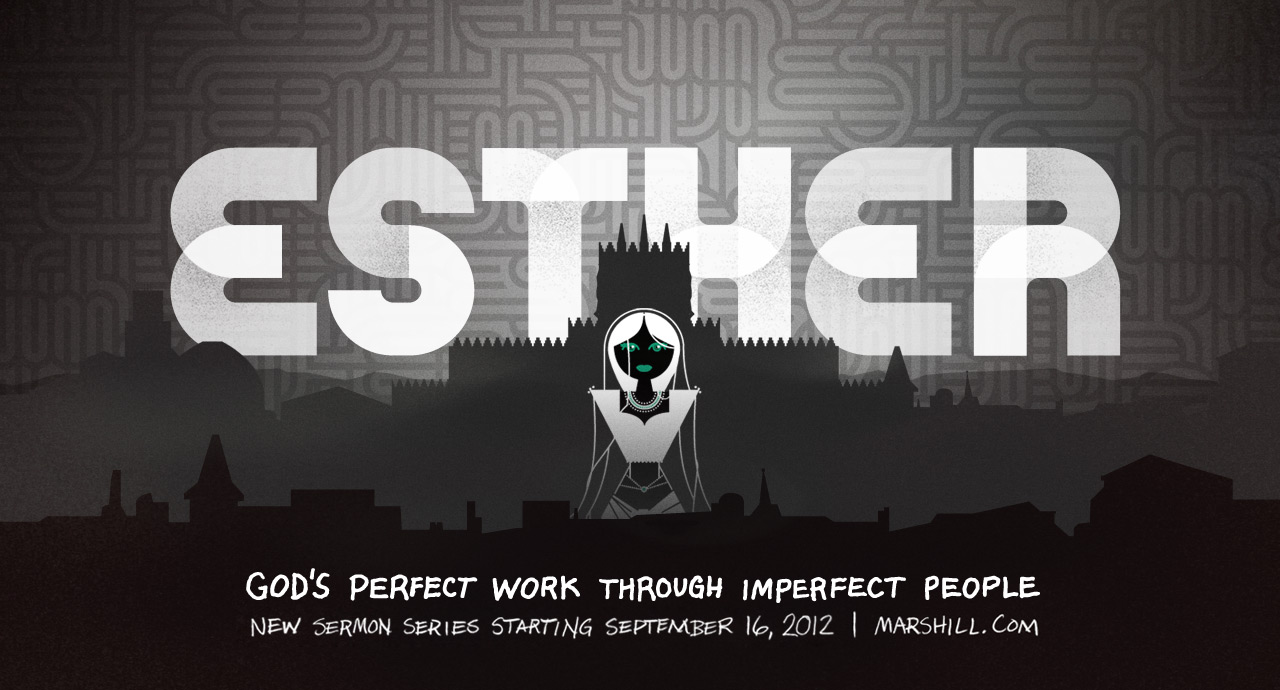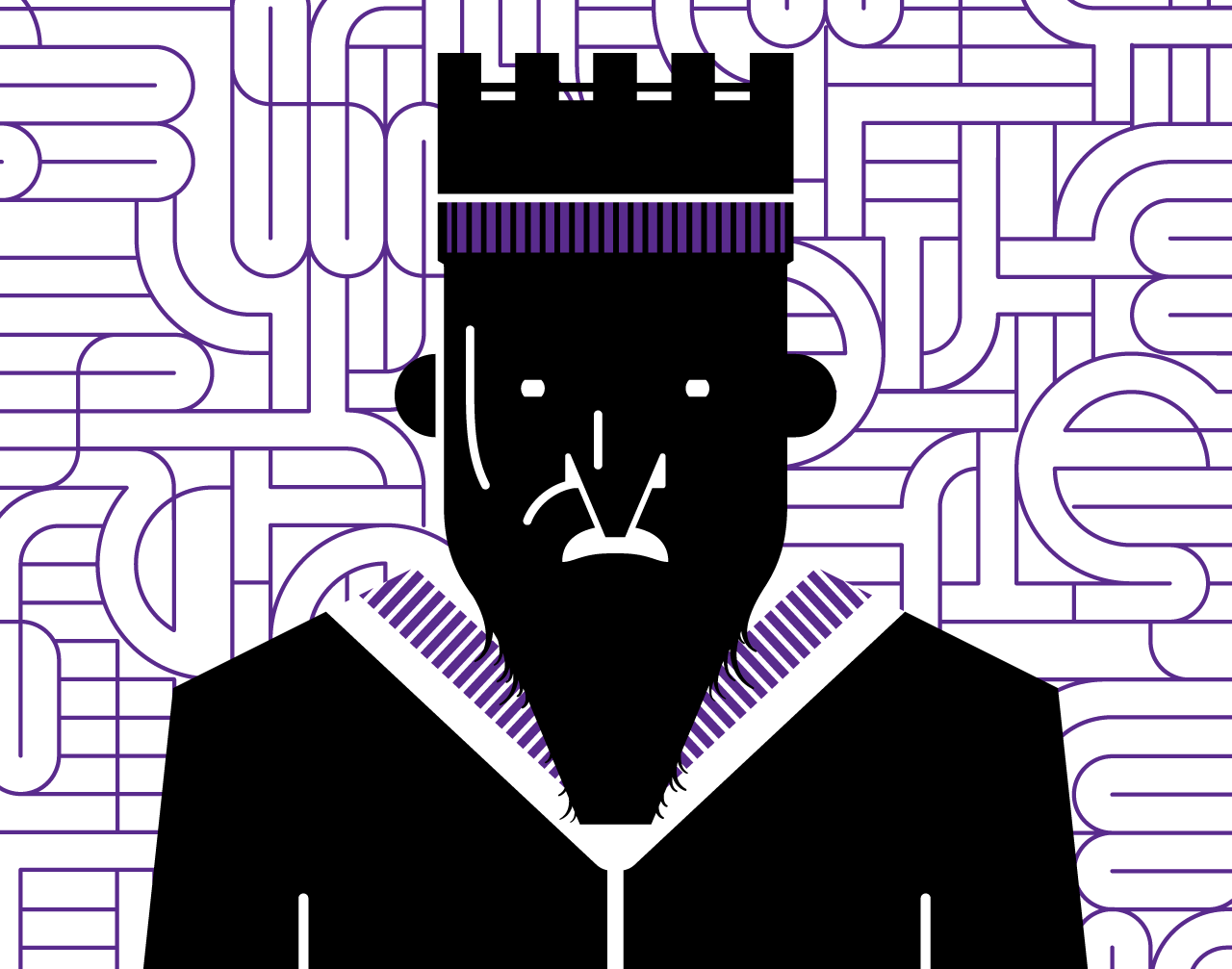
Join us for this sermon series
Find a Mars Hill Church near you
Christian preachers have treated the Bible book of Esther as cats treat water and Superman treats kryptonite.
Zero commentaries on the book were published in the first seven centuries of the Christian church. As far as we can tell, John Calvin never preached from Esther, and Martin Luther despised it, saying, “I am so great an enemy to the second book of Maccabees, and to Esther, that I wish they had not come to us at all, for they have too many heathen unnaturalities.” Very few preachers in the history of the church and more recent years have touched the book. Occasionally a preacher will do a handful of messages from the book, but rarely if ever has a well-known preacher preached through the entire book. The best commentary on the book goes so far as to recommend that the entire book of Esther not be taught.
So, what do you think I want to do? Of course, preach through all of Esther verse by verse! After all, 2 Timothy 3:16 says, “All Scripture is breathed out by God and profitable for teaching, for reproof, for correction, and for training in righteousness.” Certainly, “all” must include Esther.
This may be the most head-scratching, jaw-dropping, heart-changing sermon series we’ve ever done at Mars Hill. The book of Esther never mentions God, no one prays, no miracles happen, and the book is never even mentioned anywhere else in the Bible. It is as if God was on vacation during the time of Esther. The hero of the book is a Jewish young woman who hides her identity. And she’s not just any woman, but an orphaned girl who grew up to be so beautiful that the great King Xerxes (who is featured to this day in the movie 300 and video game Assassins Creed II) chooses her as the winner of Persia’s version of The Bachelor.
Despite all this, Esther is instrumental in saving the Jews from certain genocide and succeeds in having all of her enemies destroyed in a bloodbath. It’s not exactly the type of story you read your kids at night. No one comes off looking good, and everyone has a hidden agenda.
Yet, isn’t this what life is like most of the time? Doesn’t it seem as if God is absent and evil abounds? Don’t good things happen despite impure motives? Don’t God’s plans move forward despite us?
Perhaps the ancient story of Esther is more timely than ever. A single woman, who is barely spiritual sleeping with a bad guy due in part to the fact she has no family to lean on, meets God, is transformed, and is used by God to save others.
Through the story, we see life as we know it: God’s perfect work through imperfect people. In the end, the saving of the Jews is not about the virtue of the individuals in Esther, but completely about the providence of God and his ability to accomplish his will, no matter the imperfectness of his people.
God is ultimately the hero in Esther, and though he is not seen at first glance, those who look in faith will find him silhouetted throughout the entire story.
Esther Sermon Schedule
“Jesus Is a Better King,” Esther 1:1–9
“Jesus Has a Better Kingdom,” Esther 1:10–22
“Jesus Is a Better Savior,” Esther 2:1–18
“Jesus Died a Better Death,” Esther 2:19–3:15
“Jesus Is a Better Mediator,” Esther 4:1–17
“Jesus Gives a Better Identity,” Esther 5:1–14
“Jesus Is a Better Servant,” Esther 6:1–13
“Jesus Is a Better Esther,” Esther 6:14–7:10
“Jesus Is a Better Missionary,” Esther 8:1–17
Take your church through the Esther campaign:

Commonly referred to by his Greek name, Xerxes, Ahasuerus is the powerful but impressionable king of Persia. On the counsel of his advisers, he divorces his wife, Vashti, and throws a contest through which he finds his new wife: Esther. At the advice of Haman, he condemns the Jews to death. At the advice of Esther, he becomes an ally of the Jews and kills Haman.

A low-level official in the Persian court, Mordecai is Esther’s cousin and guardian. He is a proud and power-hungry man whose refusal to show Haman respect leads to the pronouncement by the king that all Jews are to be killed. Through cunning and trickery, Mordecai influences Esther to put her life at risk as the queen to save the Jews.

A Jew of common origin and the cousin of Mordecai, Esther is a stunning woman whose physical beauty captures the eye of King Ahasuerus and she becomes his wife, winning the ancient equivalent of the The Bachelor. When Haman convinces the king to condemn the Jews, she is their reluctant hero and only hope.

Haman is the enemy of the Jews. Also an official in the Persian court and a proud man, Haman’s hatred for the Jews is manifested in Mordecai’s disrespect for him. Using his influence, he convinces King Ahasuerus to pass a law condemning the Jews, only to have it backfire on him in the end.